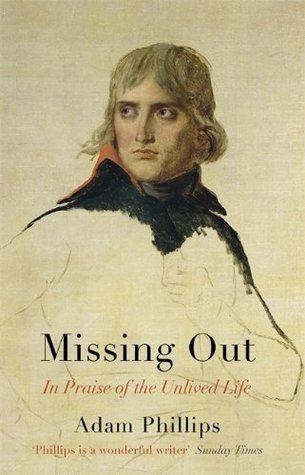What do you think?
Rate this book


224 pages, Hardcover
First published January 1, 2012
* How we can never understand what we really want until we can recognize the nature of our frustration.
* How knowing what we don't want -- what we are running from -- may show us more about ourselves than what we think we want.
* How (in my view) our world has shifted from one where morality meant something to one where morality is a game, where the Good Person is replaced by the Impressive Person, and being caught lying is now the crime as opposed to lying itself.
* We always want to be somewhere other than now, and we spend our time searching for the escape. To paraphrase Anna Freud, fantasies are the one area of our life where we can have our eggs any way we want them but we cannot eat them.
* How our yearning, our striving, our continual hope for satisfaction is a game we play with ourselves to deal with the shifting sands of life. That frequently, our search for satisfaction is about revenge.
* Some thoughts on why we get pleasure watching the mad attempt to get what they want. About how the mad are actually those who are filled with the certainty of their view of the world, and how seeing them in character form helps us to face the madness of the world around us.
But one of the strange things about satisfaction is that its anticipation precedes its realization; that it happens twice -- not quite the first time as farce and the second time as tragedy -- but first wishfully (in fantasy) and then in reality if one is lucky.
The unexamined life is surely worth living, but is the unlived life worth examining? It seems a strange question until one realises how much of our so-called mental life is about the lives we are not living, the lives we are missing out on, the lives we could be leading but for some reason are not.
Knowing too exactly what we want is what we do when we know what we want, or when we don’t know what we want.
The reason that believers don’t think of God as ‘getting away with it’ is that the phrase itself implies the existence of a higher authority. If it means breaking the rules with impunity — eluding the expected consequences, the usual constraints — it also acknowledges that there are rules […] Which is why, as we shall see, getting away with things is among our most confounding experiences. If, as Freud remarks, the child’s first successful lie against the parents is his first moment of independence — the moment when he proves to himself that his parents cannot read his mind, and so are not omniscient deities — then it is also the first moment in which he recognises his abandonment.
If God is dead it is not that everything is permitted — which would simply be his reappearance as the permitter rather than the forbidder — but that there will be no more getting away with it. I think it is worth wondering, if we can imagine such a thing, what kind of loss that might be.
‘If you look after me who will look after you?’ I asked, ‘Did you have to do a lot of looking after when you were growing up?’ And he replied, as though we were in the middle of a long conversation, ‘Yes, my mother was sick a lot and my dad was away.’ And I said, for no apparent reason, ‘When you were looking after your mother did anything really strange ever happen, anything you just didn’t get?’ There was a pause, and he said, ‘Often, very often, when I was getting up to fill the coal scuttle downstairs, my mother would shout down from her bedroom, “Can you fill the coal scuttle” . . . so I never know whether I’m doing it because I want to or because she’s telling me to.’ I remarked, ‘You said “know” as if it’s still happening now,’ and he replied, ‘It is happening now because I never really know if I’m doing what I want or whether I’m acting under instruction.’ I asked, ‘Is coming to see me an example of this?’ and he smiled and said, ‘Yes, and I think I’ll go now.’ He got up, walked towards the door, and as he opened it he said to me, ‘I am going back to my bean-field’; and I had this tremendously powerful feeling of affection for him, as if he had understood me, ‘Walden’ having been an important book in my life, though he had no way of knowing this.